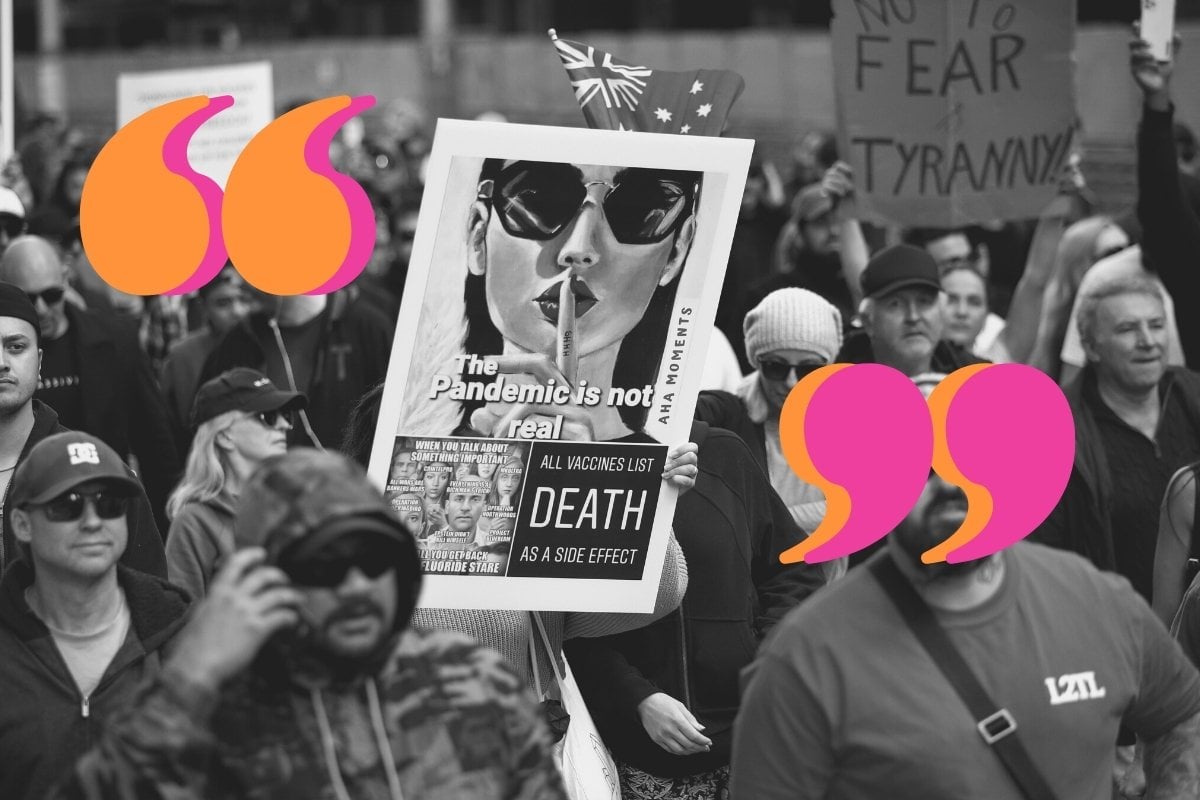
On Saturday, thousands of Australians marched in protest against public health orders designed to curb the spread of COVID-19.
The two largest gatherings were in Sydney and Melbourne, cities that were then both under stay-at-home orders amid clusters of the Delta strain of the virus.
While millions of the cities' residents remained indoors or socially distanced, the passionate groups illegally crowded into their respective CBDs as part of a 'Worldwide Rally for Freedom'.
While their motivations for marching varied, it was clear that a significant proportion of those present don't believe what science tells us about the threat of the virus.
They were willing to group together in large numbers, few were wearing masks, and many carried signs and banners pointing to major conspiracy theories about the motivation of vaccines and lockdowns. Many seemingly denied the existence of the virus itself.
 Protestors in Melbourne's march on July 24. Image: Getty.
Protestors in Melbourne's march on July 24. Image: Getty.
